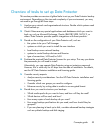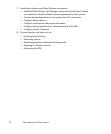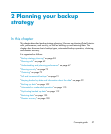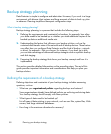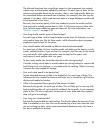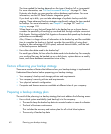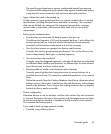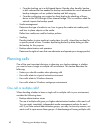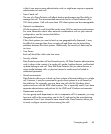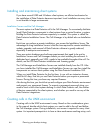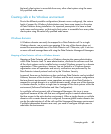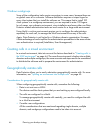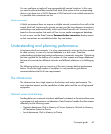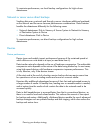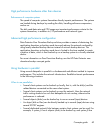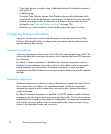is that it can require more administrative work or might even require a separate
administrator for each cell.
• Size of each cell
The size of a Data Protector cell affects backup performance and the ability to
manage the cell. The recommended maximum size for a Data Protector cell is
100 client systems. Cells with more than 200 client systems are less manageable.
• Network considerations
All client systems of a cell should be on the same LAN for maximum performance.
For more information about other network considerations such as your network
configuration, see the sections that follow.
• Geographical location
If the client systems you want to back up are geographically dispersed, it may
be difficult to manage them from a single cell and there may be networking
problems between the client systems. Additionally, the security of data may be
an issue.
• Time Zones
Each cell should be within one time zone.
• Security of data
Data Protector provides cell level based security. All Data Protector administrative
work is done in the context of a single cell: media, backup devices, and backed
up data belong to one cell. Note that Data Protector lets you share devices or
move media between cells, so physical access to media must be limited to
authorized personnel.
• Mixed environments
Data Protector allows you to back up client systems of diverse platforms in a single
cell. However, it may be convenient to group client systems in a cell based on
the platforms. For example, you may have one cell with the Windows client
systems and one with the UNIX client systems. This is especially useful if you have
separate administrators and policies for the UNIX and Windows environments.
• Departments and sites
You can group each department or site in a separate cell. For example, you may
have one cell for the accounting, one for the IT, and one for the manufacturing
department. Even if you choose to have several cells, Data Protector allows you
to easily configure common policies among the cells.
Concepts guide 63



